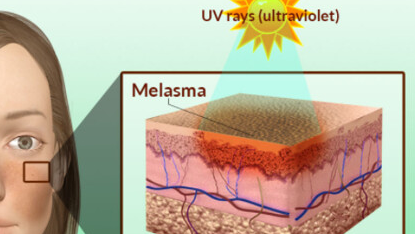
Exploring Nature's Time-Tested Remedies for Melasma
Discovering skincare solutions buried in nature's trove has long intrigued individuals seeking holistic beauty remedies. Recently, herbal therapies such as rhubarb, chickpea, and licorice have drawn attention for their potential roles in managing melasma—a common skin condition causing brown patches, often attributed to sun exposure. But how effective are these plant-based treatments?
A study revealed that patients who included rhubarb in their routine reported significant satisfaction. Similar enthusiasm surrounds chickpea combined with melon seed, which showed promising skin-lightening effects without any reported adverse outcomes. Though parsley and sorrel creams reduced the Melasma Area and Severity Index (MASI) scores comparably to traditional treatments like hydroquinone, the quest for conclusive evidence continues.
Daily Beauty Routine: Herbal Remedies on the Rise
In a rapidly evolving skincare landscape, we are increasingly turning to nature as a first point of call. The benefits of looking into nature's vast repository have gained traction, especially as more people aim for sustainable living and avoiding chemical-heavy routines. Whether grounded in science or folk wisdom, the appeal lies in the ancient and accessible allure of botanical therapeutics.
As trials are preliminary, the community awaits more robust findings. Still, there’s growing optimism that further research might substantiate the safety and substantial benefits of using botanical remedies for melasma. Promising examples include licorice, rich in glabridin, known for its lightening effects by inhibiting melanocyte activity. While current findings are insufficient for wholesale endorsements by dermatologists, the upward trend in plant-based treatments shows its potential for growth.
Future Predictions: Where Are We Heading With Herbal Alternatives?
Given the intrinsic appeal of natural healing agents, many expect a rise in the pursuit of herbal alternatives as complementary or primary treatments for melasma. With ongoing studies expected to enhance understanding, future products could emerge with improved formulations, integrating insights from the evolving science behind these remedies.
Ultimately, it might lead to a paradigm shift in beauty regimens that prioritizes nature, offering consumers a broader palette of options in their skincare pursuit. For now, maintaining a sun-protected lifestyle remains crucial as research continues to unlock the secrets hidden in these age-old remedies.
 Add Row
Add Row  Add
Add 




Write A Comment